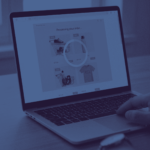Think ISO 27001 is just for IT? Think again. A growing number of non-technical roles are being pulled into operational projects – from department heads who oversee processes that involve sensitive data to employees tasked with protecting the laptops, removeable devices and other technology they use to perform their job.
The need for robust and effective information security across the entire organisation is more important than ever. With increasing regulatory pressure, tighter client requirements and growing cyber risks, understanding ISO 27001 is no longer optional for IT teams alone.
Why non-IT staff are involved
Traditionally, information security was seen as the domain of IT teams: managing firewalls, monitoring systems and ensuring technical controls were in place.
However, that perspective leaves a wide variety of vulnerabilities left unresolved. A growing awareness of information security threats has prompted organisations to take a broader, business-wide approach to risk management.
That begins with a stronger understanding where risks manifest and how to mitigate them. When you look at information security best practices in general, and ISO 27001 specifically, you will see that there are three distinct areas that must be addressed:
- People: Employees at every level handle, process and share information daily. Human error remains one of the biggest causes of data breaches, from misplaced documents to unsecured laptops and careless sharing of credentials.
- Processes: Security is reinforced through consistent, well-defined procedures – from access-control reviews and supplier vetting to incident-reporting workflows.
- Technology: Technical controls such as encryption, firewalls and intrusion detection systems form the final layer of defence. They protect the infrastructure on which information resides, but they are only effective when aligned with people and process controls.
IT teams are naturally well-versed in managing the technology aspect of security. Yet the people and process dimensions fall largely to non-technical staff – managers who oversee departments, coordinate suppliers, or maintain documentation.
That’s why organisations seeking ISO 27001 certification increasingly rely on contributions from across the business.
What is driving the change?
There are three major trends driving non-IT involvement today.
1. The spread of accountability
ISO 27001 requires organisations to assign clear ownership of assets. A department head responsible for a client database, for example, becomes the asset owner – accountable for identifying risks to that information’s confidentiality, integrity and availability.
That means understanding how data could be lost, corrupted or accessed without authorisation, and applying appropriate controls to prevent it.
2. The rise of remote and hybrid work
The traditional office perimeter no longer exists. Employees now access corporate systems from home offices, cafes and airport lounges.
Each environment introduces new risks: a family member glimpsing sensitive data on screen, a laptop left unattended, or a USB drive misplaced in transit. ISO 27001 awareness helps staff recognise and mitigate these everyday threats.
3. Growing client and regulatory expectations
Customers and partners increasingly expect assurance that their data is protected at every stage of handling – not just by IT, but by anyone who touches it.
Regulators are also demanding organisation-wide accountability. When every department understands its security responsibilities, demonstrating compliance becomes far easier.
How information security responsibilities are distributed
Every department handles information that could be sensitive or business critical. ISO 27001 provides the framework to manage that information securely.
- Department heads may act as asset owners, identifying the information their teams use, classifying its sensitivity and ensuring appropriate access controls are in place.
- HR teams manage personal data, meaning they must apply principles of confidentiality and ensure that personnel records and onboarding processes meet security standards.
- Operations and facilities managers often handle supplier contracts or logistics information – data that can reveal commercial details or security vulnerabilities if mishandled.
- Finance teams process payment data and company financials, requiring strong integrity and access management controls.
- Marketing and sales teams work with customer data and third-party platforms, where privacy and consent management are key.
Even roles that seem far removed from IT contribute to the security culture through day-to-day choices, such as how they share files, store documents or access sensitive information in public places.
Everyday scenarios that highlight shared responsibility
To understand why awareness matters, consider how quickly minor oversights can compromise information:
- Working from home: A project manager leaves confidential papers on the kitchen table. A visiting tradesperson or family member sees client data they shouldn’t.
- Travelling for business: An employee checks email on a train, unaware that someone nearby can read the screen. Later, their laptop bag is accidentally left behind in a cafe.
- Using removable media: A USB drive containing supplier contracts is misplaced. Without encryption or backup, sensitive information is lost.
- Shared cloud tools: Teams use an online collaboration platform without setting proper access permissions, exposing internal files to external users.
Each scenario shows how human behaviour, not just technology, determines security outcomes.
Building a culture of shared security
An effective ISMS depends on collaboration. When non-IT staff understand their responsibilities, they make better decisions, spot vulnerabilities sooner and reinforce the organisation’s overall security posture.
You can help achieve this with dedicated staff awareness training. Investing in ISO 27001 training is cost-effective and strategically smart. At around one day of staff time, it delivers measurable returns in reduced errors, improved audit readiness and stronger client trust.
For organisations seeking ISO 27001 certification, it also ensures that everyone – not just IT – understands how their actions contribute to compliance.
Take our Certified ISO 27001:2022 ISMS Foundation Self-Paced Online Training Course and gain the confidence to support your organisation’s certification journey. It’s the ideal first step for non-IT staff who want to participate in ISO 27001 projects. With flexible delivery options – online self-paced or in-person – the course makes learning convenient.

























